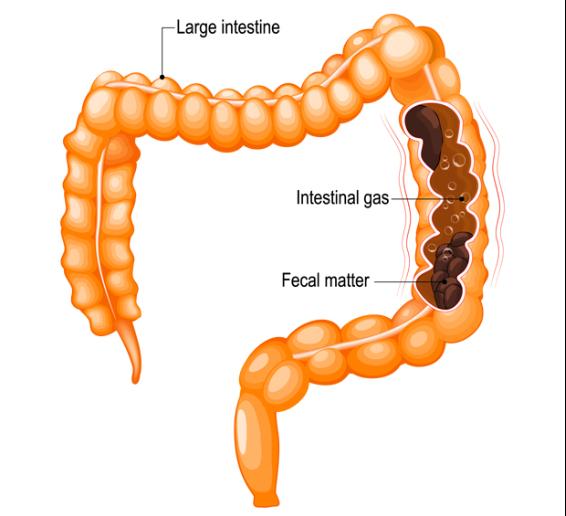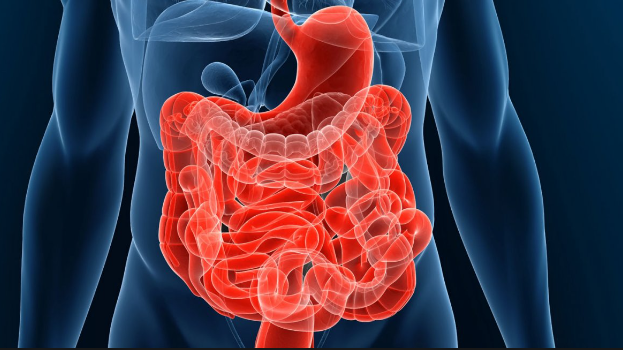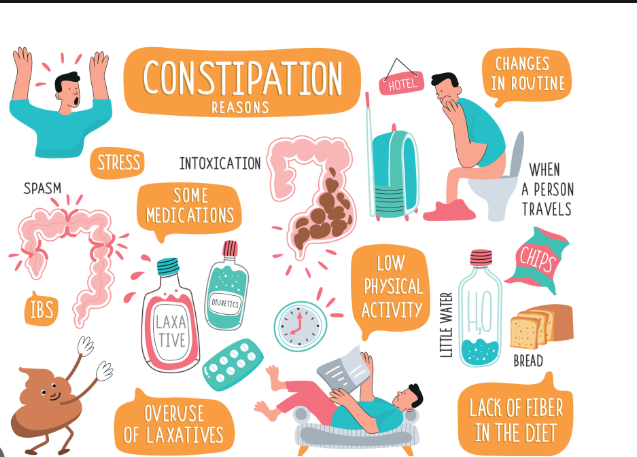Your guide to causes, symptoms, treatments, and more on constipation
As the much-beloved children’s book by Taro Gomi noted so elegantly, “everyone poops.” But, alas, not everyone poops as efficiently or as comfortably as would be considered ideal. When this happens, a condition called constipation may be to blame, and it can be a real pain in the you-know-what.
Constipation is common, but it’s not a single thing. Although most of us would probably think of constipation as an inability to defecate or having very infrequent bowel movements (three or fewer a week is a generally accepted benchmark), constipation can actually take a variety of different forms. The Mayo Clinic reports that symptoms of constipation include:
Also read-Scoliosis : A Patient’s Guide to Scoliosis And Its Symptoms

- Feeling an inability to fully empty the rectum of stool.
- Needing to strain or push to have a bowel movement.
- Passing lumpy or hard stools.
- Noticing that stool seems narrower in gauge than typical that the volume of stool doesn’t seem to match what is typical or that you’d expect based on how you eat normally
- Requiring assistance to empty the rectum, such as using a finger to dislodge stool or pressing on the abdomen to help ease stool out.
Causes of constipation
A whole constellation of causes can lead to cases of constipation. First and foremost, Lee says, is the simple act of aging. “As we get older, constipation happens to the best of us because the metabolism slows down. That’s part of the aging process—everything slows down and that includes colonic motility,” the clinical term for the passing of fecal matter through the large intestine.

Other causes may include:
- Medications. Certain medications, specifically blood pressure medications and antidepressants, can have “unwanted side effects of causing constipation,” Lee says.
- Opioid pain reliever use. If you’re taking a narcotic pain medication, such as codeine, fentanyl, oxycodone, or morphine, you’ll likely experience constipation. “Even just being on these medications for three days is enough to totally screw up colonic motility for some people,” Lee says. Anesthesia also has the potential to cause constipation, so many people experience the condition after surgery even if they aren’t taking an opioid-based pain reliever. Lee notes that even if you don’t think you’re constipated while taking these medications, you are. “All pain medications induce constipation whether you realize it or not,” she says, and that’s because of how the medications block or dampen nerve signaling to control pain; that mechanism also impacts nerve signaling in the colon, which can lead to sluggish passage of stool.
- Sedentary lifestyles. “We live in a very convenient world,” Lee says. “We don’t even go grocery shopping anymore; they deliver it to you,” and that immobility means a higher risk of developing constipation. “If you’re not physically moving, your intestines and your organs aren’t moving either,” all of which can slow the body’s ability to pass waste products through the digestive system.
When should I see a doctor?
According to Lih-Brody, you should see a doctor if you experience any “alarm signals,” such as blood in your stool, or if your symptoms have persisted for more than a few days. “At the very least, see your primary care physician and ask to be referred to a gastroenterologist if you find that you’re experiencing frequent problems with your bowel movements and that over-the-counter medications aren’t working. This could be an indication of something more serious. It is not something you want to ignore.

When you visit your doctor for complaints about constipation, your doctor will take a thorough medical history and conduct a physical exam. “We look for any other medical conditions, such as hypothyroidism,” an endocrine disorder in which the thyroid gland doesn’t produce enough of a necessary hormone. You’ll likely also have some bloodwork to check your electrolytes and other markers that could signal a bigger problem or complications. “The GI tract is part of the rest of the body, so it can be a bystander in systemic conditions. You want to make sure you’re not missing” anything big, such as a thyroid condition or cancer, Lih-Brody says.
Your doctor will also ask a lot of questions about your surgical history, as that can lead to constipation, even if the surgery was many years ago. Surgeries such as a C-section, hernia correction, spinal surgery, disc surgeries, gynecological surgeries such as removal of an ovarian cyst or a tubal ligation and even surgery for an undescended testicle can lead to constipation down the road because of a loss of sensation caused by damaged or dislocated nerves. “Patients forget about it because it happened when they were babies or very young, but by age 40 or 60 years, they can present with pelvic floor problems” that lead to a loss of sensation that may cause constipation.
It’s likely that your doctor will also inquire about your diet, particularly regarding the amount of water and fiber you consume.
To put it briefly, your doctor may have to play detective to determine what’s going on, which Lee finds to be “kind of exciting.” To identify the offender, you must have excellent communication skills and be able to gather all the historical information.
A colonoscopy may be recommended for certain patients, especially those 45 years of age and above, in order to assess the condition of the intestines. Your doctor may also recommend a colonoscopy if you are younger and have experienced chronic constipation. Even though young adults still have a low incidence of colon cancer, the incidence among those younger than 45 is on the rise.
Treatments
If you’re dealing with a case of chronic constipation, you may have several options available to help resolve the issue. Lee says the treatment approach you’ll be offered will depend on the specific symptoms you’re having. If, for example, you haven’t had a bowel movement for several days, “then you’re talking about a motility/movement issue, so that patient treatment option will be very different than what would be recommended for the person who has movements regularly but they take 1 to 2 hours. That suggests a pelvic floor dysfunction, and their treatment is very different from someone who just doesn’t have a movement for several days,” Lee explains.

For some people, over-the-counter remedies such as laxatives can get things moving again. For others, removing a medication that’s causing constipation as a side effect is the key to treating it. For still others, surgery may sometimes be the right course of action. Because there’s such a wide variety of potential triggers and possible treatment approaches, it’s important to get checked out to make sure you know what you’re dealing with and get the best care.
The important thing, Lee says, is to speak up if you’re having an issue. “If you come see a doctor and we identify a problem, that will change your trajectory. And you’re a much easier patient to treat than someone who was shy and didn’t bring it up and just dealt with it for decades. When patients in the 50s or 60s come in and say, ‘I’ve been having this for 30 years,’ that’s much more of a challenge to correct.” Therefore, it’s important to talk to your doctor, even if it seems a little embarrassing. “Everyone thinks they’re somehow the only one” who’s dealing with constipation, “but it’s not true. It’s like gray hair – we all get them. So, don’t be shy. Seek help early.”
Also read-Crohn’s Disease : A Patient’s Guide To Crohn’s Disease And Its Symptoms
images source: Google
Disclaimer: The opinions and suggestions expressed in this article are solely those of the individual analysts. These are not the opinions of HNN. For more, please consult with your doctor.




































